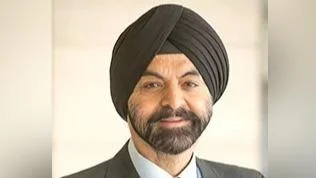Spain is advocating for an increased impact of Special Drawing Rights (SDRs) through the International Monetary Fund (IMF) and the World Bank Group (WBG)’s enhanced framework for scaled-up climate action. The country plans to double its SDR contribution to the IMF’s Resilience and Sustainability Trust (RST). This initiative aims to optimize resources dedicated to helping countries tackle climate challenges, leveraging the IMF’s RST, WBG’s policy and project financing, and additional resources from development partners and the private sector.
“Spain continues to champion the need for further progress in channeling SDRs and today reaffirms its commitment to multilateralism, with a substantial contribution to the RST, whose impact is expected to be further deepened with the implementation of an enhanced cooperation framework between the IMF and the World Bank. To this end, and after completing all national procedures, Spain will channel SDR 1.5 billion to the RST in support of climate policies identified by the national authorities with joint support by the World Bank and the IMF as the framework is operationalized. Last year during the Annual meetings in Marrakech, Spain raised its pledge to channel up to 50 percent of its 2021 SDR allocation, and today´s announcement underscores its support to stronger collaboration between Bretton Woods Institutions and their respective memberships, to effectively tackle climate action. Spain encourages others to join in supporting the new framework and making additional pledges to the RST alongside supporting the WBG’s financial capacity, including through its new financial instruments, as well as IDA21 replenishment, highlighting the need for more innovative efforts to meet growing financing demands by most vulnerable countries,” said Spain’s Minister of Economy, Trade and Business Carlos Cuerpo.
The enhanced framework aims to accelerate country-led climate action by raising the effectiveness of SDRs channeled to both RST and WBG's policy/project financing. It also seeks further financing mobilization from bilateral donors, multilateral development banks, and private sectors.
“Spain's commitment to multilateralism alongside strong collaboration between World Bank and IMF is a powerful example of how we can collectively accelerate climate action in developing countries. By working together we can unlock critical resources and expertise needed for building a more resilient future," stated World Bank Group President Ajay Banga.
“I welcome Spain’s leadership on SDR channeling and support for enhanced IMF-World Bank Group collaboration. The IMF’s RST is key for providing policy support for climate action in emerging economies; more contributions are needed given strong demand from countries,” commented IMF Managing Director Kristalina Georgieva.
Generous pledges from 23 countries are already aiding nations' climate actions via RST since it became operational in October 2022. Eighteen countries have benefitted so far with over 30 expected requests soon.
These efforts complement significant climate finance packages provided by WBG which targets allocating 45 percent of annual financing towards climate initiatives by 2025. Other measures include hybrid capital, portfolio guarantees adjustments on equity-to-loan ratios along with new financial incentive frameworks while raising funds robustly for IDA21 replenishment.
Both IMF & WBG appreciate member country supports aiming swift operationalization of joint enhanced frameworks focused on effective global climate actions.

